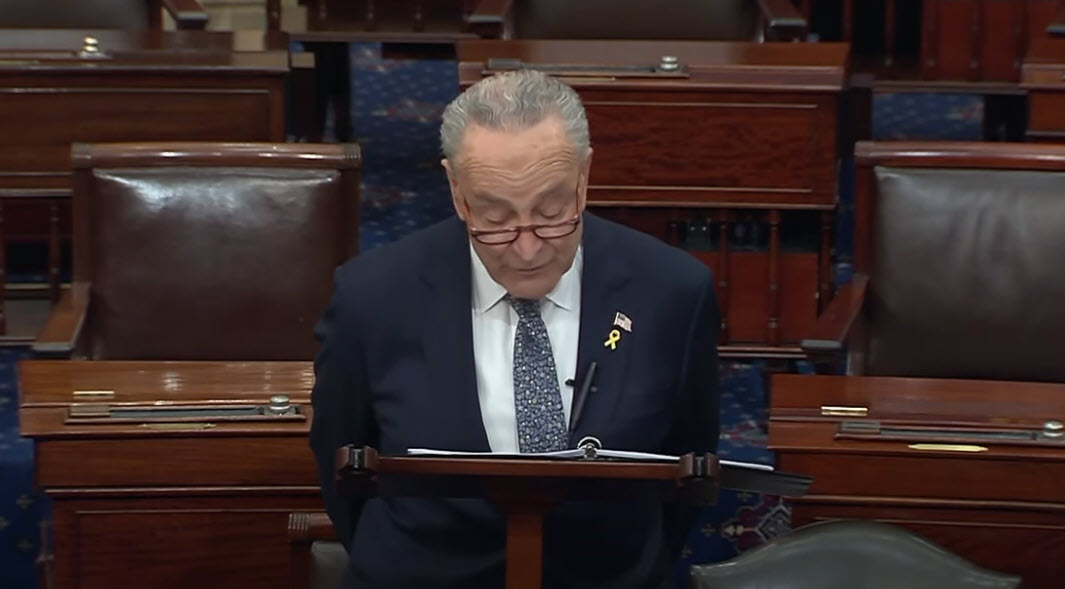In a fervent reaction to Senate Majority Leader Chuck Schumer’s recent remarks regarding Israel, Republicans have sharply criticized his stance on Israeli Prime Minister Benjamin Netanyahu. Schumer, speaking from the Senate floor, referred to Netanyahu as an impediment to peace in the ongoing Israel-Hamas conflict and advocated for fresh elections in Israel.
House Speaker Mike Johnson condemned Schumer’s comments, labeling them as “highly inappropriate and fundamentally erroneous.” Johnson underscored the existential threat faced by Israel and emphasized the need for unwavering support amid escalating tensions in the region. Schumer’s outspoken criticism of Netanyahu comes amidst mounting pressure within his own party, as the death toll among civilians continues to rise in Gaza.
Republicans across the political spectrum have voiced their disapproval of Schumer’s call for new elections in Israel. Senator Ted Cruz characterized Schumer’s stance as a betrayal of a longstanding ally and accused him of undermining Israel’s sovereignty during a critical juncture. Other prominent Republicans echoed similar sentiments, expressing concern that Schumer’s remarks could weaken America’s alliance with Israel and embolden Hamas in its aggressive tactics.
Furthermore, Schumer’s remarks have sparked intense debate within Congress, with both Democratic and Republican lawmakers weighing in on the matter. While some Democrats have voiced support for Schumer’s position, others have distanced themselves, calling for a more nuanced approach to the Israel-Hamas conflict. Meanwhile, Republicans have seized on Schumer’s comments as evidence of what they perceive as a growing divide within the Democratic Party over its stance on Israel.
In response to the backlash, Schumer’s office released a statement reaffirming his commitment to Israel’s security and reiterating the need for a peaceful resolution to the conflict. However, the controversy surrounding Schumer’s remarks underscores the complex dynamics at play in the Israel-Hamas conflict and the challenges of navigating bipartisan consensus on foreign policy issues.
As the conflict in the Middle East continues to escalate, it remains to be seen how Schumer’s comments will impact U.S. foreign policy and diplomatic efforts in the region. With tensions running high and the civilian death toll mounting, the stakes are higher than ever for policymakers to find a path towards de-escalation and lasting peace in the region.



